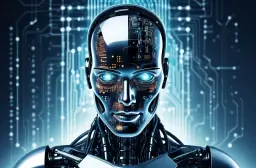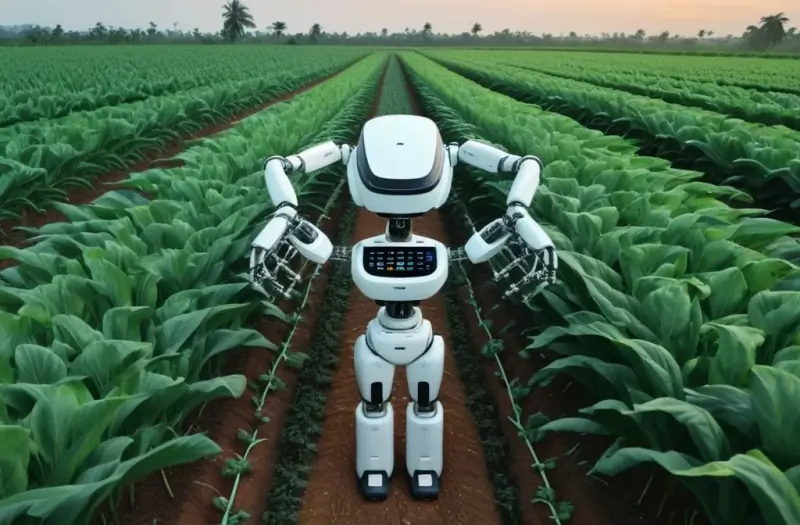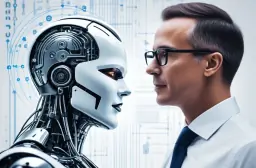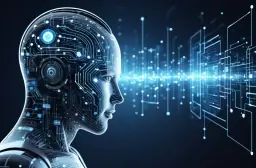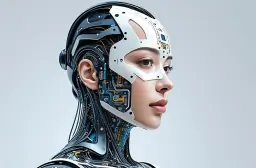How AI Transforms Daily Life: Smart Tech Innovation Unveiled
Table of Contents
In today’s fast-paced world, the intersection of artificial intelligence and our daily routines has become increasingly undeniable. From the smartphones in our pockets to the smart devices in our homes, AI is quietly but powerfully shaping our lives. We may not always realize it, but AI-driven tools are already making our daily tasks more efficient and personalized. But how exactly is this transformation taking place, and what impact does it have on the way we live?
Have you ever wondered how a machine can predict your needs before you even express them? Or how your morning routine can be streamlined by just speaking a word? These questions aren’t part of some futuristic sci-fi novel—they’re the reality of how AI is transforming everyday life. In this article, we’ll dive into how AI-powered solutions, smart gadgets, and intelligent systems are making our routines smarter and more connected.
As we explore this topic, it’s important to challenge the common notion that AI is just for tech experts or large corporations. AI is increasingly accessible and essential in our daily lives, whether through digital assistants, automated home systems, or predictive technology. Let’s take a closer look at the different facets of AI that are now woven into the fabric of everyday living.
The Rise of AI in Household and Personal Life
With the increasing integration of artificial intelligence in daily life, it’s no surprise that our homes are becoming smarter. AI-powered systems are revolutionizing how we interact with household devices. From smart thermostats that learn your schedule to voice assistants that manage your calendar, the convenience of AI has made managing daily tasks easier than ever.
Smart Home Systems are a prime example of AI’s growing role. These systems not only automate the lighting and climate control in your home but also enhance security, monitor energy usage, and provide personalized recommendations based on your habits.
One of the most common AI-driven devices in many homes today is the voice assistant, such as Amazon’s Alexa, Google Assistant, or Apple’s Siri. These systems have transformed how we interact with technology. With just a voice command, we can control nearly every aspect of our homes, from adjusting the temperature to playing music, or even ordering groceries.
Another breakthrough in AI for personal use is the AI-powered household gadgets that make our lives more comfortable. Whether it’s a smart vacuum that autonomously cleans your floors or a fridge that alerts you when your groceries are running low, AI-powered tools are continuously evolving to make our lives more seamless.
AI-Driven Efficiency: Smart Devices for the Modern Worker

Artificial intelligence is not limited to household applications—it’s also revolutionizing how we work. AI tools have become invaluable for increasing productivity, whether in the workplace or at home. From intelligent systems that manage emails and appointments to sophisticated machine learning algorithms that assist in decision-making, AI is now deeply embedded in many industries.
For professionals, AI-powered productivity tools like virtual assistants and task automation software are key enablers. Imagine having an AI assistant that organizes your meetings, answers your emails, and even analyzes data—all while you focus on high-level tasks. These systems are designed to learn from your habits, improving over time and optimizing your workflow.
Machine learning in routine tasks is another significant development. AI’s ability to analyze vast amounts of data means it can provide more accurate predictions, help with complex problem-solving, and automate repetitive tasks that used to take up much of your time. This enables professionals to focus on more creative and strategic aspects of their roles.
From personal productivity to corporate settings, AI-powered solutions are increasingly being utilized for their ability to streamline operations, boost efficiency, and reduce human error.
Predictive Technology and AI in Everyday Tasks
In our daily lives, AI doesn’t just automate actions—it anticipates needs. Thanks to predictive technology, AI can help with everything from optimizing our schedules to improving the customer service experience.
Predictive technology uses data and machine learning models to forecast future events, behaviors, or needs based on patterns. For example, AI-powered apps can recommend the best time to leave for work based on traffic conditions or suggest meals based on your dietary preferences. This kind of seamless interaction between technology and daily life not only saves time but also enhances the overall quality of life.
In the retail industry, AI-driven personalization is another noteworthy trend. By analyzing your browsing habits, AI can recommend products that align with your tastes, creating a more tailored shopping experience. This technology doesn’t just end with online shopping; it’s increasingly being integrated into physical stores as well, using smart devices to track inventory and offer personalized deals to customers in real-time.
Robotics in Daily Life: AI in Action

While AI-powered smart devices and assistants are already common, robotics is another area where AI is making a significant impact. Robotic systems have already been deployed in various sectors, from manufacturing to healthcare, but they are now also making their way into homes and daily routines.
For example, robotic vacuum cleaners such as Roomba are a perfect example of AI in action. These devices use machine learning to map out the layout of a room, adapt to obstacles, and even optimize their cleaning routes. Similarly, AI-powered personal assistants can help with tasks like elderly care, providing support for daily living activities or offering companionship.
The continuous development of robotics in daily life will likely lead to even more advancements, with robots becoming more autonomous and capable of handling complex tasks.
AI for Personalized Living
As we continue to integrate AI into our daily routines, personalization becomes one of its most powerful features. AI personalization allows technology to adapt to your preferences and needs, creating a more intuitive and tailored experience.
For example, smart devices like wearables track your fitness progress and adapt to your activity levels, suggesting workouts or recovery methods based on your goals. Similarly, AI-powered streaming services like Netflix or Spotify recommend shows and music based on your preferences, creating a more customized entertainment experience.
Moreover, AI in healthcare is another area where personalization is making a huge impact. AI-driven health apps can monitor your health metrics, provide insights, and even offer recommendations for better lifestyle choices, based on the data gathered.
The future of AI will likely bring even more personalized experiences in all areas of life, from shopping to healthcare, to entertainment.
FAQs
What is AI in everyday life?
AI in everyday life refers to the various applications of artificial intelligence in routine activities. It includes devices like voice assistants, smart home systems, and AI-driven productivity tools that improve convenience and efficiency.
How does AI improve productivity?
AI improves productivity by automating repetitive tasks, analyzing data for better decision-making, and providing predictive insights that help streamline workflows and optimize time management.
Can AI make decisions on its own?
AI can make decisions based on data it has been trained on. However, it typically requires human oversight to ensure its actions align with ethical guidelines and broader goals.
What are some examples of AI in daily life?
Some examples of AI in daily life include voice assistants (like Siri and Alexa), smart home devices, AI-powered productivity tools, and personalized recommendations from online platforms.
Is AI safe to use in everyday tasks?
Yes, as long as the AI systems are properly implemented with the necessary security protocols and adhere to ethical standards, they can significantly enhance everyday tasks without compromising safety.
Conclusion
AI is no longer a futuristic concept—it is already transforming our everyday lives. From AI-powered smart home systems that automate our living spaces to predictive technology that anticipates our needs, AI is making daily tasks more efficient and personalized. As we continue to integrate AI into our routines, we can expect even more innovations that will enhance convenience, productivity, and overall quality of life.
The future of AI promises a world where intelligent systems not only support our daily activities but also improve how we interact with the world around us. With AI becoming more accessible and integrated, it is clear that the future of our daily lives will be driven by smart technology and seamless AI interaction.






